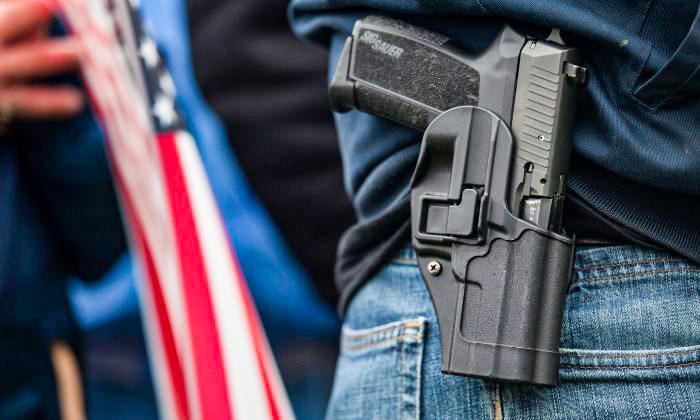Americans who smoke marijuana are still prohibited from owning guns under federal law, the Bureau of Alcohol, Tobacco, Firearms and Explosives (ATF) said in a cautionary statement.
Shortly after Minnesota Gov. Tim Walz on May 30 signed a bill legalizing recreational marijuana across the state, the ATF reminded Minnesotans that federal law still prohibits anyone defined as an “unlawful user” of a controlled substance, including cannabis, from possessing firearms or ammunition.





